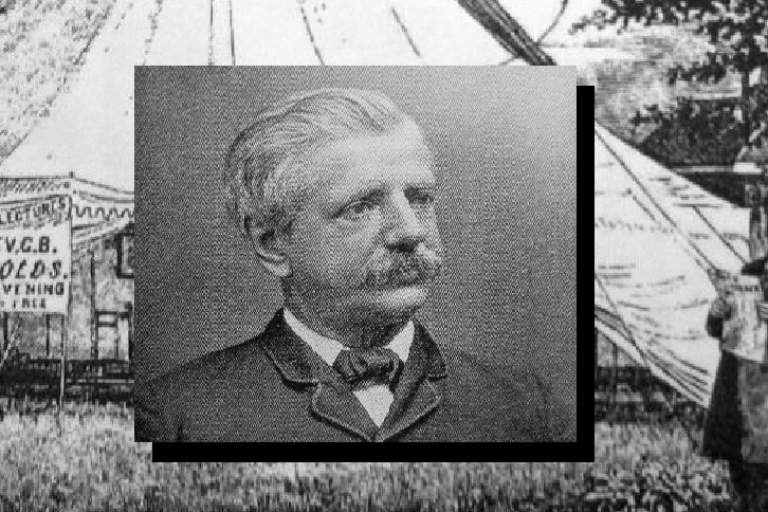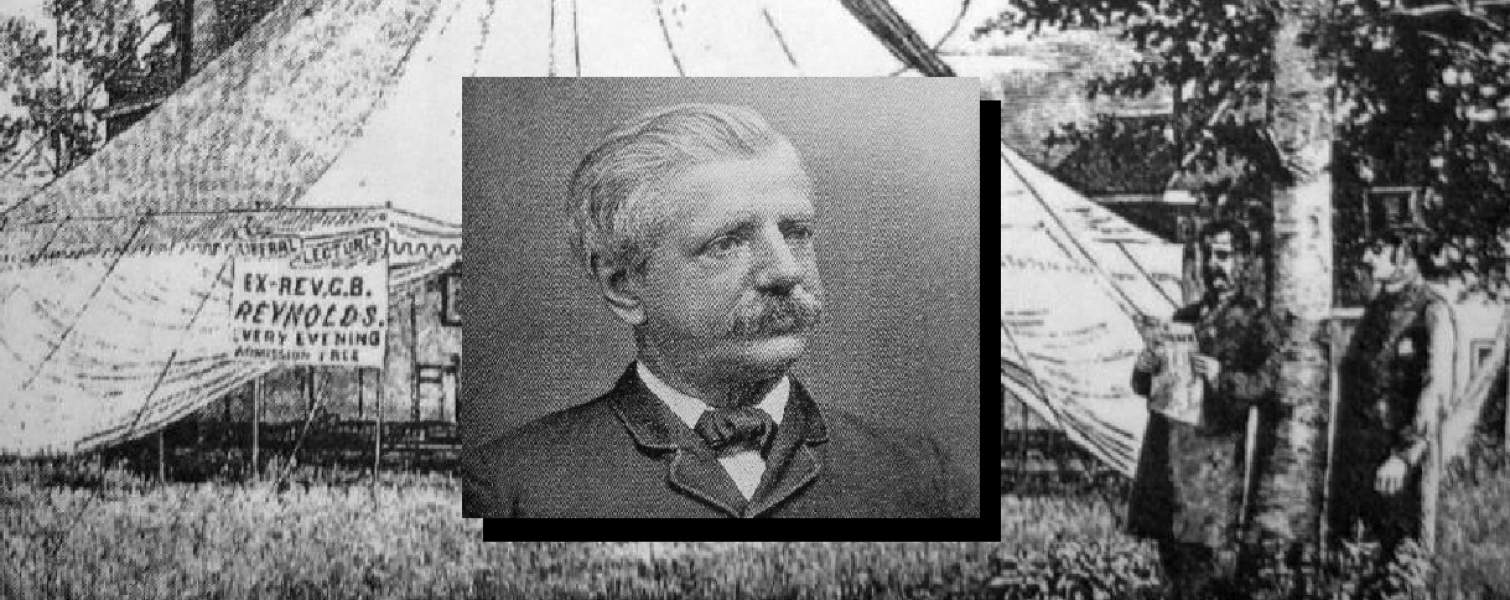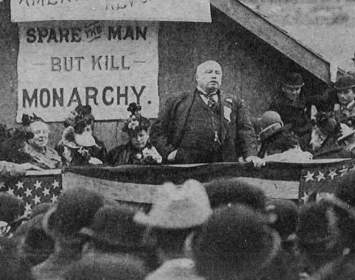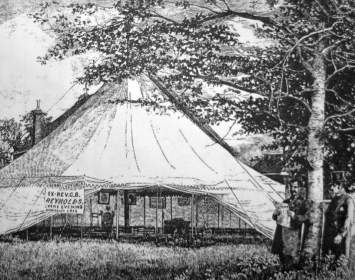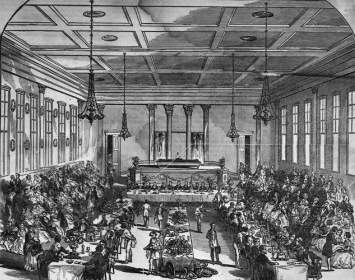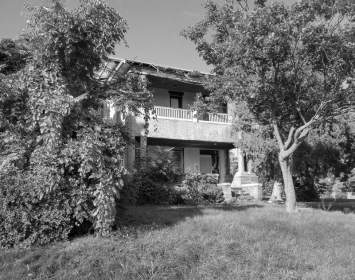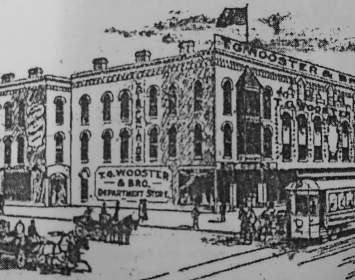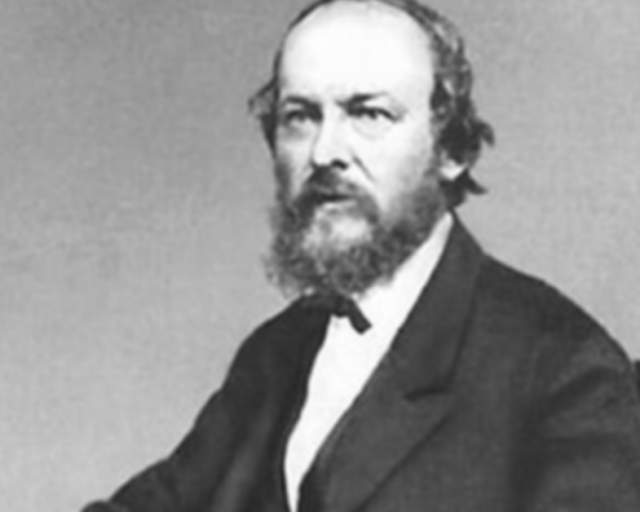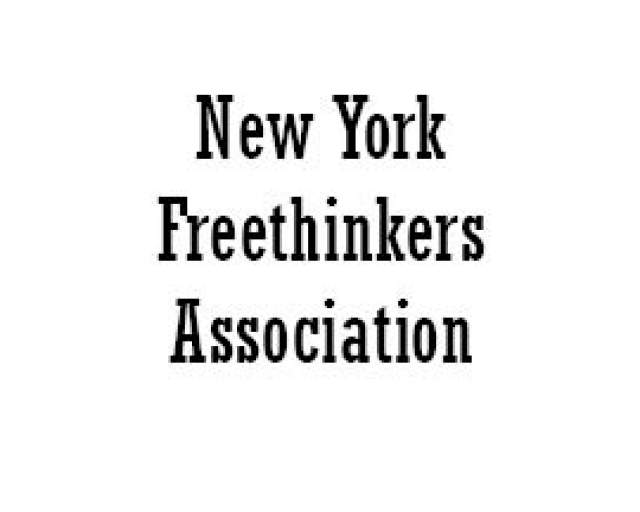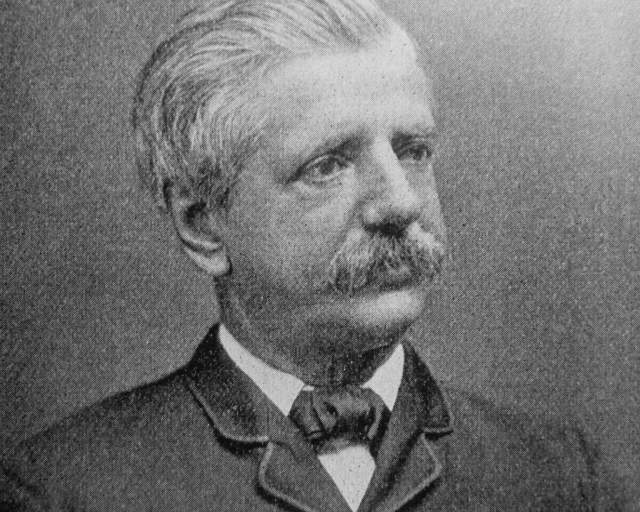
Minister turned freethought lecturer Charles B. Reynolds (1832–1896) first achieved prominence as a Rochester resident. But he is best known as the plaintiff in an 1887 New Jersey blasphemy case at which he was memorably defended by Robert Green Ingersoll.
Reynolds was born in New York City in 1832 and orphaned at age five. His subsequent upbringing is a mystery; he reappears in the historical record only in the late 1860s. He was then a traveling Seventh-day Adventist preacher based in Rochester. With its insistence on a Saturday Sabbath and other idiosyncratic doctrines, Adventism was controversial; its evangelists were sometimes subject to abuse by more orthodox Christians. The experience would stand Reynolds in good stead when he became an evangelist for freethought.
Reynolds "converted" to freethought (or as he called it, the "religion of humanity") in his late forties. He credited Rochester freethinkers Elias H. Gault and Gault's wife, Polly, with playing indispensable roles in this process, though precisely what they did or over what period of time is not known.
In December 1882, Reynolds made his debut as a freethought lecturer, delivering a well-received eulogy for the late D. M. Bennett, publisher of the influential freethought paper The Truth Seeker at a private memorial event held at the Gault residence. September 1883 marked his public debut at Rochester’s Corinthian Hall/Academy of Music, addressing a meeting of the New York State Freethinkers’ Association.
Reynolds’s star rose rapidly. At an 1884 convention of the National Liberal League held in Cassadaga, New York, he was elected chairman of that organization’s executive committee. (The following year the organization renamed itself the American Secular Union.)
Early in 1885 Reynolds made a public appeal for funds to purchase a tent of the type favored by tent revival preachers. This would enable him to offer freethought lectures at locations where no hall was available. Reynolds solicited donations in the pages of The Truth Seeker: “No other means devised can so popularize Secularism,” he promised. The needed $500 was raised quickly; a single gift of $300 came from Geneva philanthropist William Smith, who would later found the women's college that still bears his name today.
In the June 13, 1885, issue of The Truth Seeker, a voluble Reynolds wrote: "Thanks to the princely liberality of such whole-souled friends of humanity and Secularism as William Smith, of Geneva, New York."
Reynolds first pitched his fifty-foot-diameter round "Liberal tent" in Kalamazoo, Michigan. In 1885 and 1886 he kept a crowded lecture schedule, sometimes accompanied by his wife, as he was when lecturing at Hornellsville’s Metropolitan Hall in March 1886. He lectured in Palmyra on June 25, 1886.
Sometimes Reynolds’s Adventist background showed through. He advocated for what he called a “religion of humanity,” once claiming that freethinking secularism offered its adherents “salvation—salvation from error, bigotry, fanaticism, and ignorance, insuring a more useful, better, nobler, and consequently happier life.”
Reynolds would address the public more than a thousand times; only one would end in violence and criminal proceedings. In July 1886, Reynolds pitched his “good cotton cathedral” in Boonton, New Jersey. There he would receive a hostile reception. Over three nights of lecturing, vandals damaged his tent and the local constabulary arrested him for blasphemy. At last he was rushed by a mob and forced to run for his life, abandoning his tent to destruction.
Provocatively, Reynolds returned to New Jersey, lecturing without a tent at Morristown on October 13, 1886. He was again arrested for blasphemy; this time the case went to trial. In a bold move, Reynolds recruited famed agnostic orator (and attorney) Robert Green Ingersoll to conduct his defense.
Ingersoll’s involvement made the trial—held on May 19, 1887—a national media sensation. Ingersoll called no defense witnesses, relying instead on a summation several hours long. “Blasphemy is what an old mistake says of a new discovered truth,” Ingersoll intoned. “Blasphemy is what a withered last year’s leaf says to a this year’s bud.” The next day, the jury found Reynolds guilty, but the judge—perhaps persuaded by Ingersoll’s arguments, perhaps chastened by his community’s increasingly ridiculous profile in the press—imposed only a modest fine. Ingersoll paid the fine from his pocket and charged Reynolds no fee for his legal work. Afterward, no American state or municipality would bring another blasphemy prosecution to trial, save for Maine’s successful 1919 prosecution of Lithuanian freethinker Michael X. Mockus.
Three months after his conviction, Reynolds accepted an invitation to tour the American Midwest and West. He spent about a year traveling and lecturing, ending in the the Pacific Northwest, where he resolved to make a new home. Reynolds moved with his family to Washington state in 1889. He lectured actively in Walla Walla, Tacoma, and Seattle, and became a leader of the Washington Secular Union. Reynolds died at Seattle in July 1896, succumbing to a head injury he had sustained in a fall while conducting a funeral for another freethinker in McMinnville, Oregon.
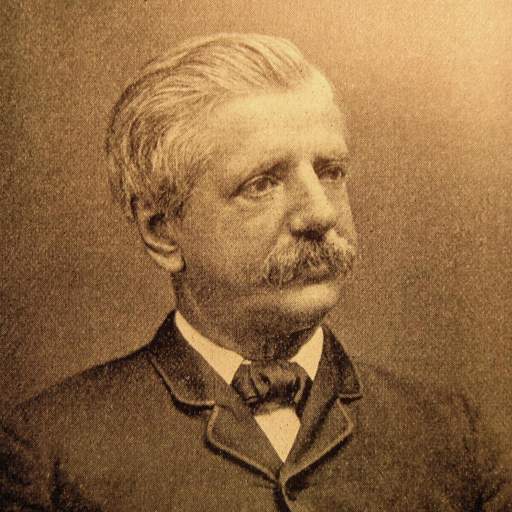
Charles B. Reynolds
Portrait of Charles B. Reynolds.
Associated Causes
Associated Historical Events
Memorial Meeting Honoring D. M. Bennett
December 1882
Seventh New York Freethinkers Association Convention
August 29, 1883
Lectures by Rev. and Mrs. C. B. Reynolds in Hornellsville
March 20–21, 1886
C. B. Reynolds Gives Freethought Lecture
June 25, 1886
